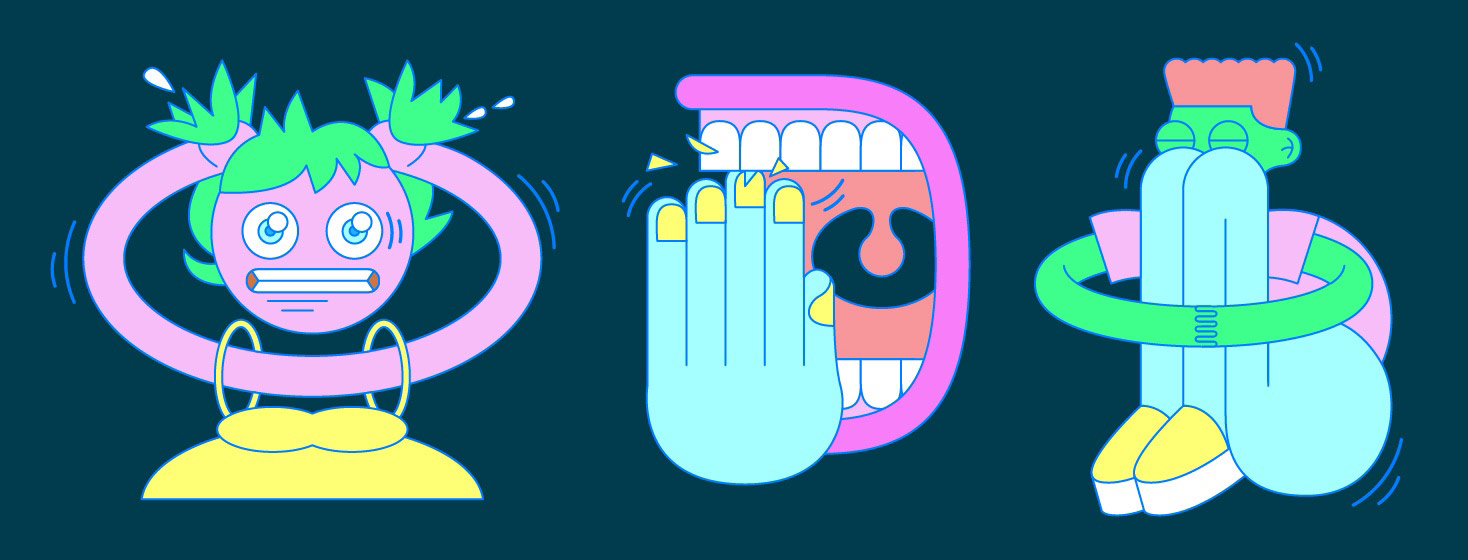Self-Help Tips to Manage Anxiety
Occasional anxiety is normal. But people with anxiety disorders have severe and excessive worry. That worry can be about big things – like losing your home – or everyday situations. People with HIV often face stress linked to health, money, and stigma. This might be why people with HIV have higher rates of anxiety.1-3
People with HIV experience anxiety at a much higher rate than the general population. About 1 in 5 people with HIV has symptoms of generalized anxiety disorder (GAD). Compare that to 1 out of more than 30 people in the general population with GAD.1-3
What is anxiety?
Anxiety is an emotion that makes us feel tense, stressed, or worried. It can cause physical changes to your heart rate and blood pressure.3,4
What are anxiety disorders?
Worry and fear do not go away for people with an anxiety disorder. The anxiety can get worse over time. The negative feelings can be hard to control. Those feelings can disrupt everyday life.2-4
People with anxiety may have repeated thoughts. They may dwell on an expected outcome. They may avoid situations or complete tasks. Anxiety disorders can involve repeated episodes of sudden and severe anxiety.2-4
Some anxiety disorders include:2-4
- GAD, or generalized anxiety disorder
- Social anxiety disorder
- Panic disorder
- Phobias
An intense episode of anxiety is sometimes called an anxiety attack. “Anxiety attack” is not a clinical term, but many people use it anyway.2,5
Anxiety symptoms
Anxiety occurs in anticipation of a stressful experience or event. It can start gradually and build up over time. Symptoms of anxiety can include:2-4
- Feeling nervous, restless, or tense
- Feeling a sense of danger or panic
- Increased heart rate
- Nausea
- Dry mouth
- Heavy breathing
- Difficulty sleeping
- Digestive problems
- Sweating
- Shaking
- Feeling weak or tired
- Trouble focusing on anything besides the current worry
- Wanting to avoid certain situations
Anxiety treatment and therapies
Talk to your doctor if you have constant worry or if your anxiety does not get better. Without help, anxiety may get worse over time. There are many ways to treat anxiety. The most common treatments include therapy, drugs, or a combination of the 2. Talk to your doctor about what treatment approach will work best for you.2,4
Therapies for anxiety include:4
- Cognitive behavioral therapy (CBT)
- Exposure therapy
- Talk therapy
Drugs that can help anxiety include:4
- Anti-anxiety drugs such as diazepam, lorazepam, alprazolam, and buspirone
- Antidepressants such as sertraline, fluoxetine, and duloxetine
- Beta blockers such as propranolol and atenolol
Self-help strategies
Talk to your doctor about ways to manage anxiety on your own. You may be able to manage your symptoms through coping strategies. You can also take preventive measures.2,4,5
Coping strategies to reduce anxiety include:2,4,5
- Exercising
- Deep breathing
- Distracting yourself
- Meditating
- Joining a support group
- Recognizing your feelings as anxiety or panic
- Journaling about your feelings and mood
Preventive measures include:2,4,5
- Staying active
- Staying engaged in hobbies or doing things you enjoy
- Avoiding drugs and alcohol
- Practicing yoga or stretching
- Getting enough sleep
- Eating a balanced diet
- Identifying triggers

Join the conversation